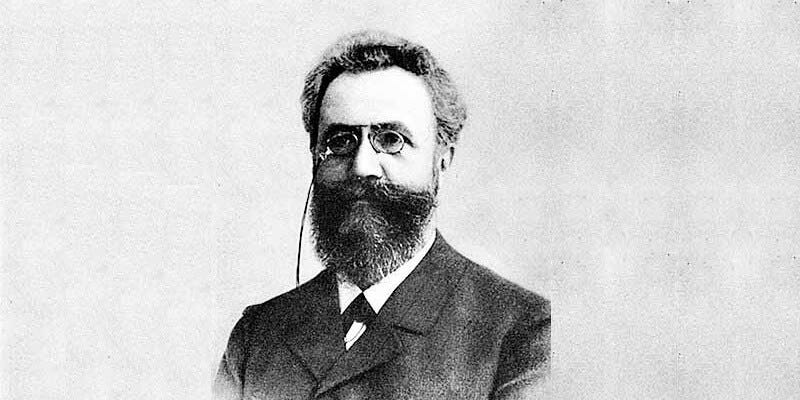How Distributed Study Saved My Semester and Could Save Yours Too

Let me tell you, there’s this specific phrase I hear people say around school after tests, and I’ve found myself saying it in my head much more often than usual. I can’t believe I pulled that off.
And I don’t mean in a cocky way either. I mean in a confused, jaw dropped, “what… in… the… world,” kind of way. What changed? What have I been doing differently? Did I stumble through some toxic waste, mutating me into some kind of cerebral mastermind? No. All I did was distribute out my study time.
Studying Effectively
If you have ever spent time in college, then you know as well as I do, that that’s the last thing you’ll find there. Time. To study with. Even if you don’t go to school I’m sure you’ve been disappointed (as we all have) by a friend’s reply, “Sorry, I can’t go, I need to study for a test.”
So how on earth can we make our study time more effective? I’ve asked myself this question (as have most students) and haven’t ever really got far. Except maybe that time I told myself I’d eat a cookie for every other page I read or something like that. We all knows what happens to the cookies. Yeah, they’re gone after half a page, and unless knowledge is made of cookie matter, I don’t have any more of it than I did when I started reading.
But there are ways to study better. Plenty of ways, I’m sure you’ve heard of them. Most involve being a scheduling genius and having a whole lot of motivation and excitement for your academic future. Like if you just get excited and happy enough, you’ll ace every test. But if you’re like me (and brave enough to admit it), you know you have to use your energy and inspiration as wisely as you use your time, because life just isn’t that simple.
Wiry Beards Etc.
So how can you use the same amount of energy and time studying and still get better results? The answer comes, as it always seems to come, in the form of an old German guy with a wiry beard and a dazzling pair of spectacles. Or rather, the experiment he so smartly conducted.

Our old German guy is Hermann Ebbinghaus, 1850–1909. He was among the first to study memory as its own field of psychology, and is heralded as being the first to discover the value of distributed practice. Just like it sounds, rather than cramming study into one session, the student may study more than one session, but still for the same or lesser an amount of time.
The results of Ebbinghaus’s experiments are quite profound, and very clearly in support of the premise that Distributed practice is the most efficient method of study. To explain briefly, the way Ebbinghaus tested this was by first learning a list of 12 random syllables and then attempting to recall them on them the next day, and alternatively learning a list of 12 random syllables over a span of 3 days and then also attempting to recall them. When learning the list over 3 days, it only took him half the time to be able to efficiently repeat the syllables from memory!
But memorizing random syllables, of all things? At first this may seem like a very strange way to test memory, but it’s actually genius. By memorizing meaningless syllables, Ebbinghaus mimics language without using words, wiping out a whole array of variables that come with dealing with actual terms, like whether or not the subject has heard the term before, or how well it may be associated with his current long term memories, which could affect how easily he would remember the word and hence influence the outcome of the experiment.
By using meaningless syllables Ebbinghaus still utilizes the same mental processes involved in learning language to simulate the student experience (which would involve the learning of new terms or information), but without speaking to the definitions and ideas associated with the specific terms themselves.
Ebbinghaus you clever old boy.
My Own Experience with Distributed Study
So how do I apply the principle of distributed practice to my own study? I’ll use the example of my psychology 120 class. On my first test I got a 78% after cramming the night before the test. After learning about distributed practice, and determined to do better on Test 2, I studied for two days before the test, and by method of distributed practice I managed to score a 98% without actually studying any longer than i had for test one!
Of course, my personal experience was by no means a scientific experiment, but it was a place where distributed practice seemed to prove itself a useful principle in my own life, and the phenomena also clearly lines up with all the how in the hell did I pass that tests that happened to me over the semester.

Because, SCIENCE.
Still curios as to why distributed study is so much more effective than traditional study? It comes down to the mysterious inner-workings of the human mind. Research in the field of neurology has lead us to conclude that what happens when we sleep, and our dreams, are not random but in fact mechanisms reflecting the unconscious process of our brain categorizing and maintaining information left over from the previous day.
That’s right, we need to sleep to live, and there’s some good reasons. When we sleep, our brains seem to cement all of our memories from the day before into our long term memory (also called storage memory), both clearing our mind for the next day and preparing us to recall those memories on demand, for whatever reason.
It appears as though sleep is the underlying factor in distributed practice, a kind of catalyst, laying in stone all our memories from the previous day, preparing us for what the next morning may bring.
So, don’t procrastinate. You don’t have to study for a million hours, just study smart. Study over a few days, not just one.
Who knows, study smart enough and you’ll get that Ph.D. so you can finally contribute to the world of science and come up with some of your own meaningless syllables @HermannEbbinghaus. Oh boy, I can hardly wait.


